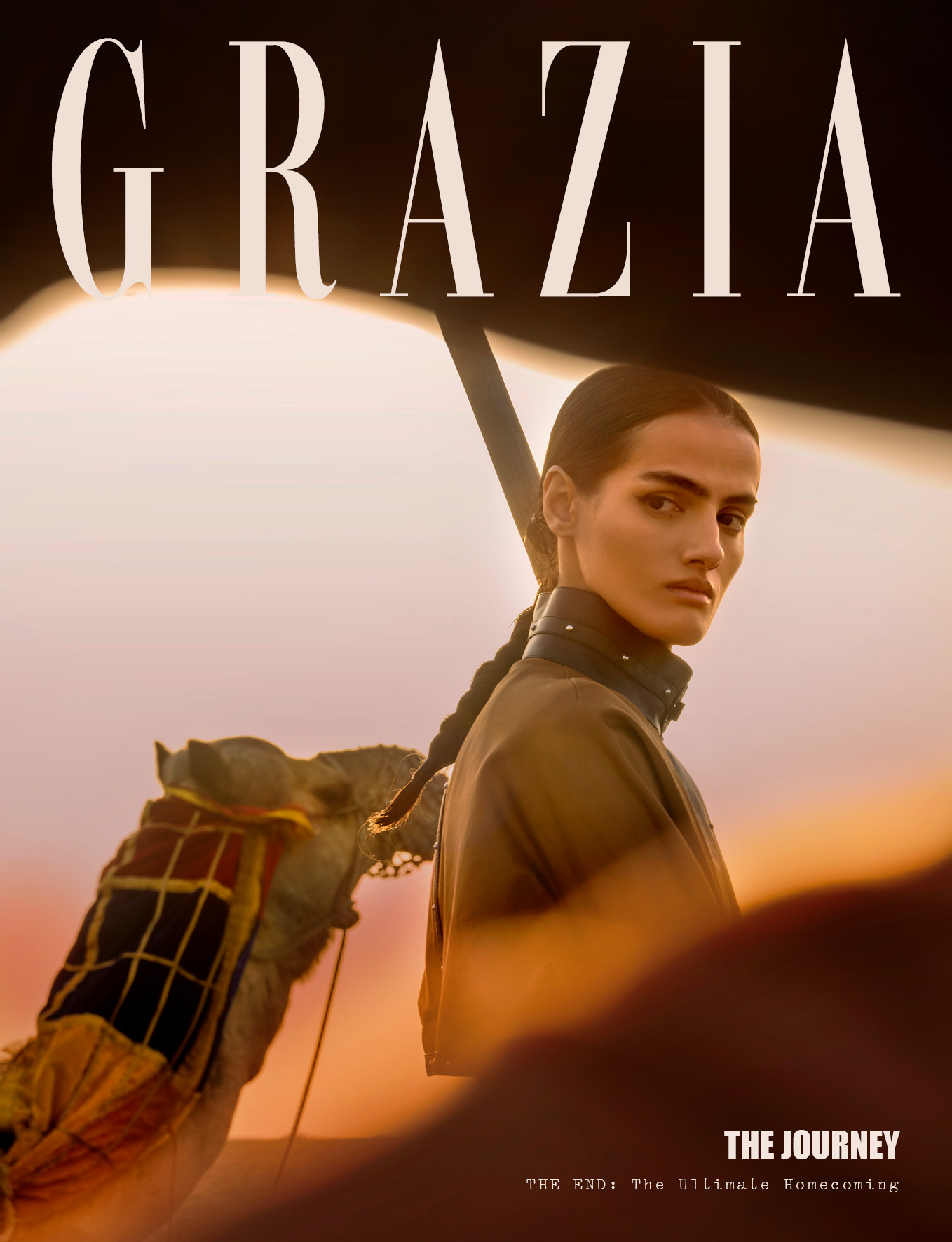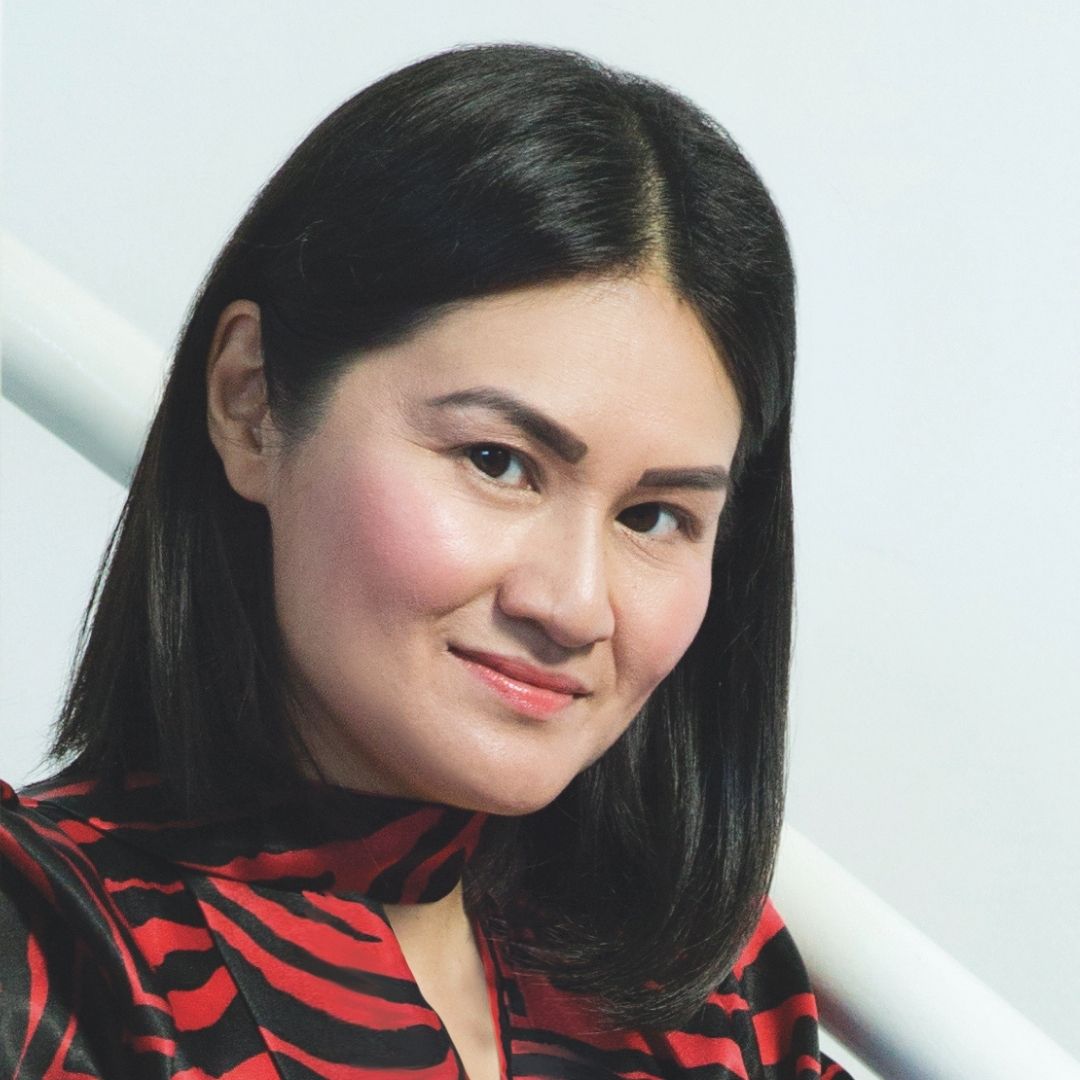
PHOTOGRAPHY AVAN RAI FASHION DIRECTION HARMAN ACHINT HAIR & MAKE UP MANUEL LOSADA PRODUCER NATASCHA HAWKE MODEL DIPTI SHARMA / ANIMA CREATIVE MANAGEMENT
“I think I’m going to die.” There it was. A cry for help. A sudden realisation. A bid for reassurance. An admission of fear. An acknowledgement of her own mortality. All in one sentence. I let those words float in the air then fall to the floor in silence.
Full of vision boards and what I know now to be toxic positivity – the self-help book of the moment was The Secret – I was convinced I could will my mother back to good health with the power of my thoughts. And even at my most evolved, the best I could do at the time was, “Of course you’re not, why would say that?” It still remains a searing source of guilt that I didn’t offer her the space to process her feelings because I didn’t possess the maturity, the vocabulary, and the roadmap for the path ahead of us.
Someone who does, however, is Alua Arthur, who I encountered while compiling our series of essays on the impact Virgil Abloh has left on our culture and community. “Why should we think about death? Because it’s the only thing that creates context for life. The only thing. If it wasn’t for death, nothing else would matter,” she insists. And as a death doula, and founder of the end-of-life planning, training and support organisation Going with Grace, Alua helps others navigate this complex journey.
“In my belief, death work at its core is a form of activism. You’re a patient advocate, you’re an advocate for the family. This is activism cloaked in love.” Describing the role of a death doula, she asks, “What does love look like in the face of death? To me, it looks like supporting families and loved ones to expand their innate capacity to be with their dying.”
My mother’s name was Grace which I took as a sign to enrol for Going with Grace’s End of Life Training programme to piece together the way I should have responded when faced with losing her. “I think acceptance of our own mortality is an incredibly high bar for anybody,” Alua admits, “but we can start to think about what we want to experience in the time that we have left – and I use experience rather than do. It might be the work, it might be the book, but it might also be conversations about forgiveness. Often when I ask that question, people start out with the practical and then they quickly shift into the emotional and the esoteric.”
Making the distinction between experiencing and doing is as important in life as it is when approaching death. “In this modern society, we have a very hard time separating ourselves from what we do. We focus so much on what we do, and how we do it, what it means about us when we do it, and what it tells the world when we don’t.” Alua calls this the weaponisation of purpose. “So I often ask people, if they strip away any link to the work they do, or any relational identity, what remains? Because our core identities are one of the things that we need when we die. When you become ill, you won’t be as productive as you used to be. So then, who are you when you take that away? Who are you in the absence of what you do? Who are you in the absence of who you love and who loves you? That’s a difficult question for many of us to grapple with, but I challenge people to spend some time on it.”
Studying to be a death doula comes with its caveats. For those, like me, who have experienced the loss of a loved one, it can be an opportunity for healing, and a chance to turn pain into purpose, but it cannot, she stresses, exist as a channel for unresolved grief. And Alua warns, “While we work in creating a peaceful death, it is not our role to confront anybody’s fear of or denial of death directly unless we are asked to do so.”
Like the stories in this book, the journeys we’re on – be they allegorical, metaphysical, spiritual, emotional, real or imagined – are as unique as we are, yet we’re all bound by this single inevitability.
My hope was that learning about conscious dying; legacy, rituals, and meaning making; and bereavement and burnout would somehow become a shield to protect my future self, but I sense it should well turn out to be the opposite – a lowering of my defenses, and a whisper to the storm that when it comes, I’ll be ready. And perhaps, next time, I can rewrite the ending.

ALISON TAY
@THESTYLEEDITOR
[email protected]
This Editor’s Letter is published in the third edition of GRAZIA Middle East. Click here to discover more from THE JOURNEY.









